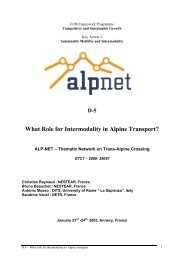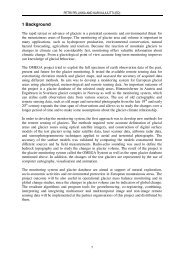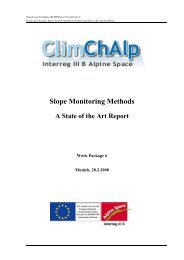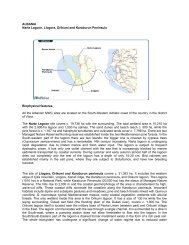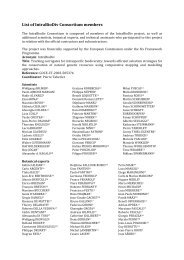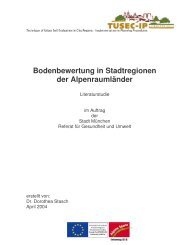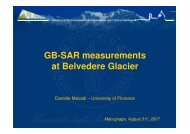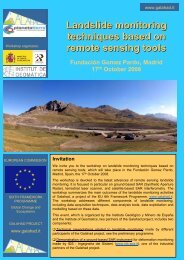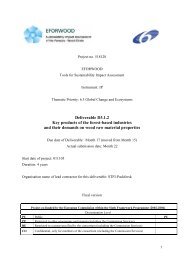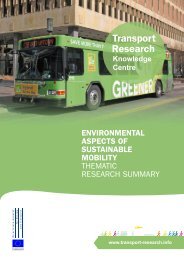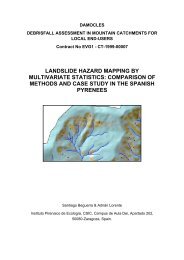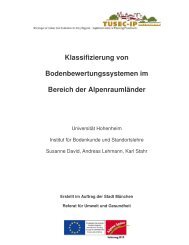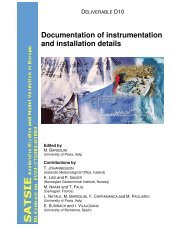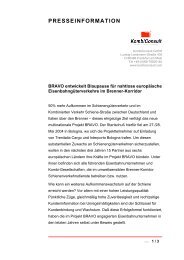Decision Support Tools - Thematic Research Summary - Transport ...
Decision Support Tools - Thematic Research Summary - Transport ...
Decision Support Tools - Thematic Research Summary - Transport ...
You also want an ePaper? Increase the reach of your titles
YUMPU automatically turns print PDFs into web optimized ePapers that Google loves.
project assessments. It is therefore necessary to develop appropriate models thatcan help to form a second opinion on projects that apply for EU funding.4.4.4.2 Approaches for assessing sustainability and quality of lifeThe operational methodology and tool for assessing the sustainability impact of alltransport policies within the EU provides policy makers with a clear overview of theindicators and their individual and total response to transport policies. The main implicationwill be an improvement of the quality of their decisions (REFIT, 2008).Currently, social scientists are not really involved in the evaluation of transport policyimpacts on quality of life (QoL), even though they can provide useful contributions to thisdebate. In fact, most experts involved in these evaluation activities have a technicalbackground (such as engineering and/or architecture). A sustainable transportdevelopment requires balancing economic, environmental and social costs and benefits,consequently the creation of multidisciplinary teams including, in particular, socialscientists is recommended (ASI, 2005). Furthermore, the current lack of a general conceptor operational definition of QoL makes it difficult to establish the correct impacts of policieson the evaluation of QoL. Experts have different disciplinary backgrounds (e.g.,architecture, town planning, transportation planning, civil engineering, economy) whichlead to different (and sometimes divergent) ideas on QoL. This prevents not only makescommunication difficult, but also hampers the development of appropriate instruments toassess QoL. Interdisciplinary work and communication between experts is thereforerecommended, as well as the harmonisation of definitions concerning QoL issues (ASI,2005). Finally, it is recommended to consider with much emphasis the subjective aspectsof QoL when assessing transport policy by involving the people affected in the design,planning and implementation of transport policies (ASI, 2005).4.4.4.3 Methodologies for common evaluationThe main recommendations from the evaluation of the measures implemented in theCIVITAS I initiative are (METEOR, 2006):• The CIVITAS policy fields (clusters) ensure a comprehensive coverage of allpossible actions to increase the sustainability of urban transport systems.• The results of the implementation of CIVITAS I have shown that the criticalsuccess factors to deliver higher sustainability levels are basically the modal splitand vehicle fleet performance. These 2 factors should drive policy formulation andthe identification of priorities.• CIVITAS I has confirmed that the exchange of best practices among cities is highlybeneficial.<strong>Thematic</strong> <strong>Research</strong> <strong>Summary</strong>: “<strong>Decision</strong> <strong>Support</strong> <strong>Tools</strong>” Page: 51 of 74<strong>Transport</strong> <strong>Research</strong> Knowledge Centre



